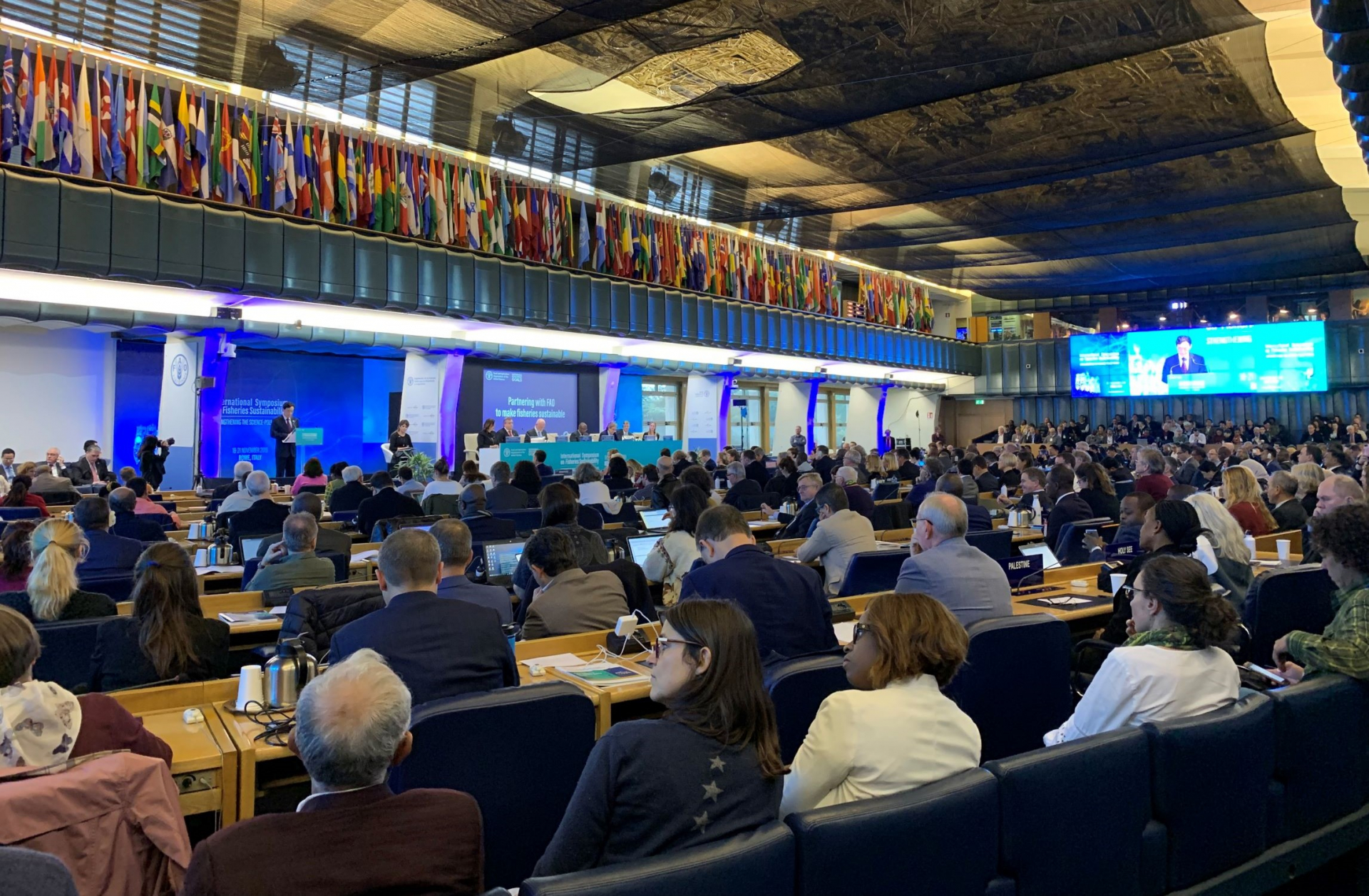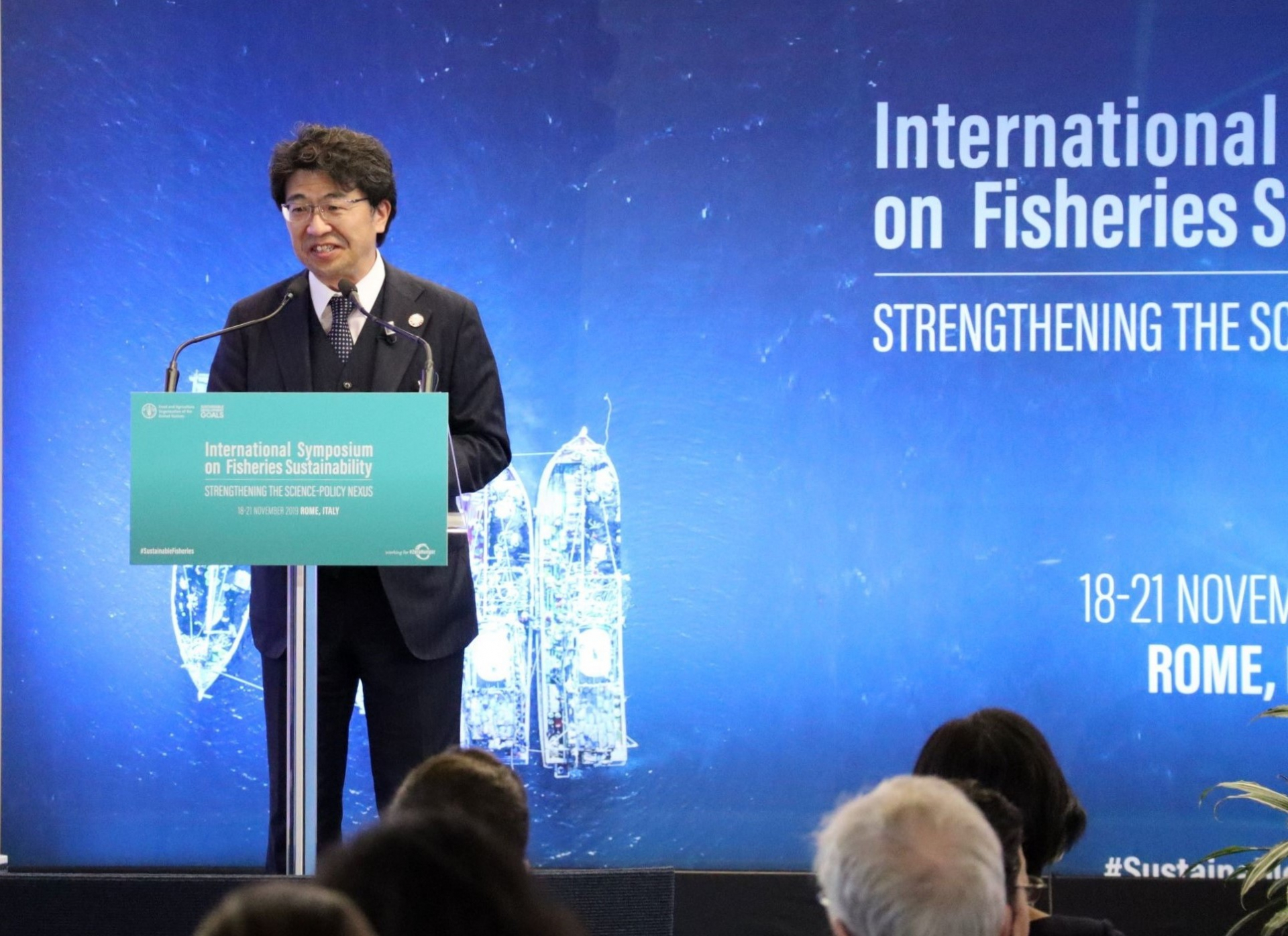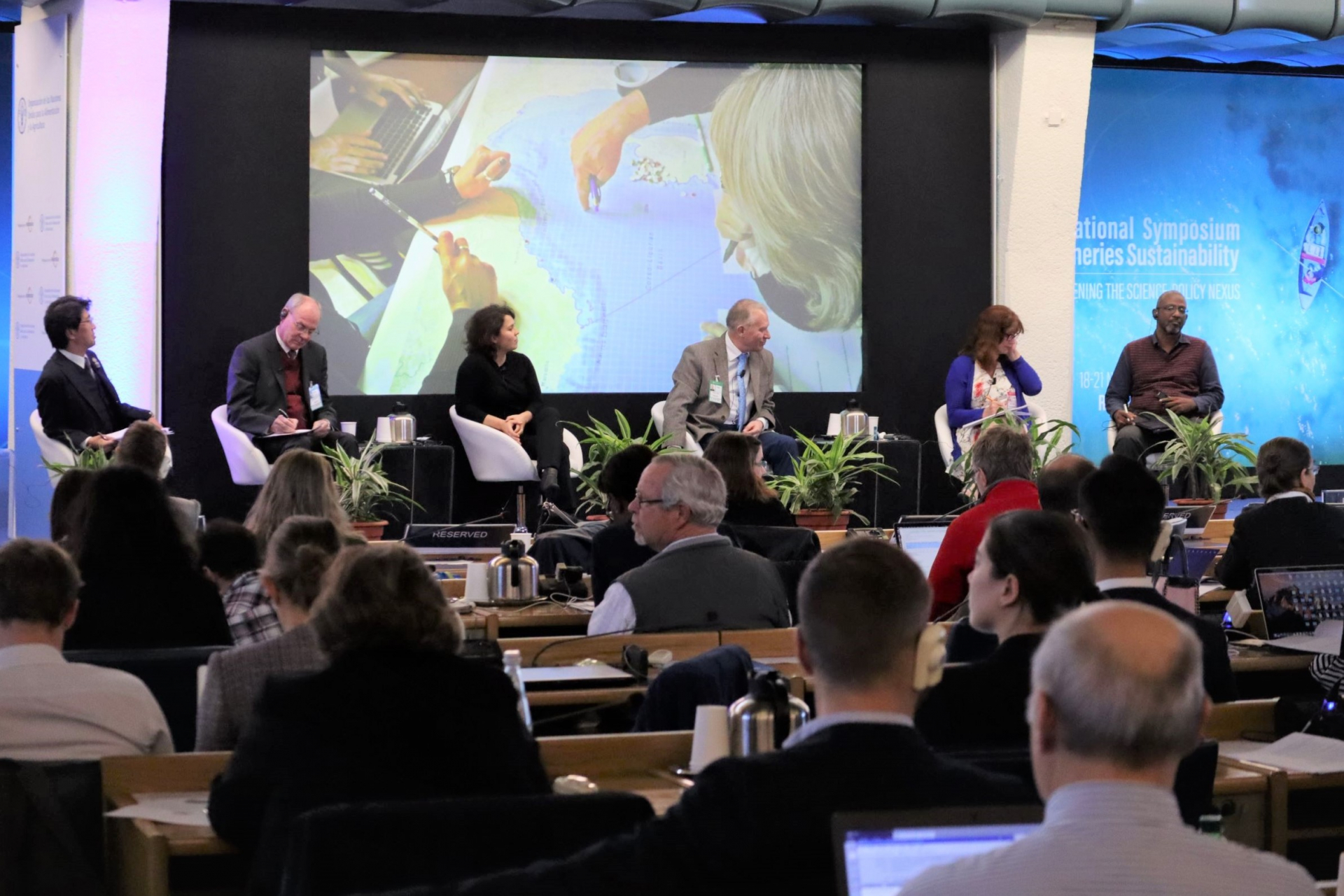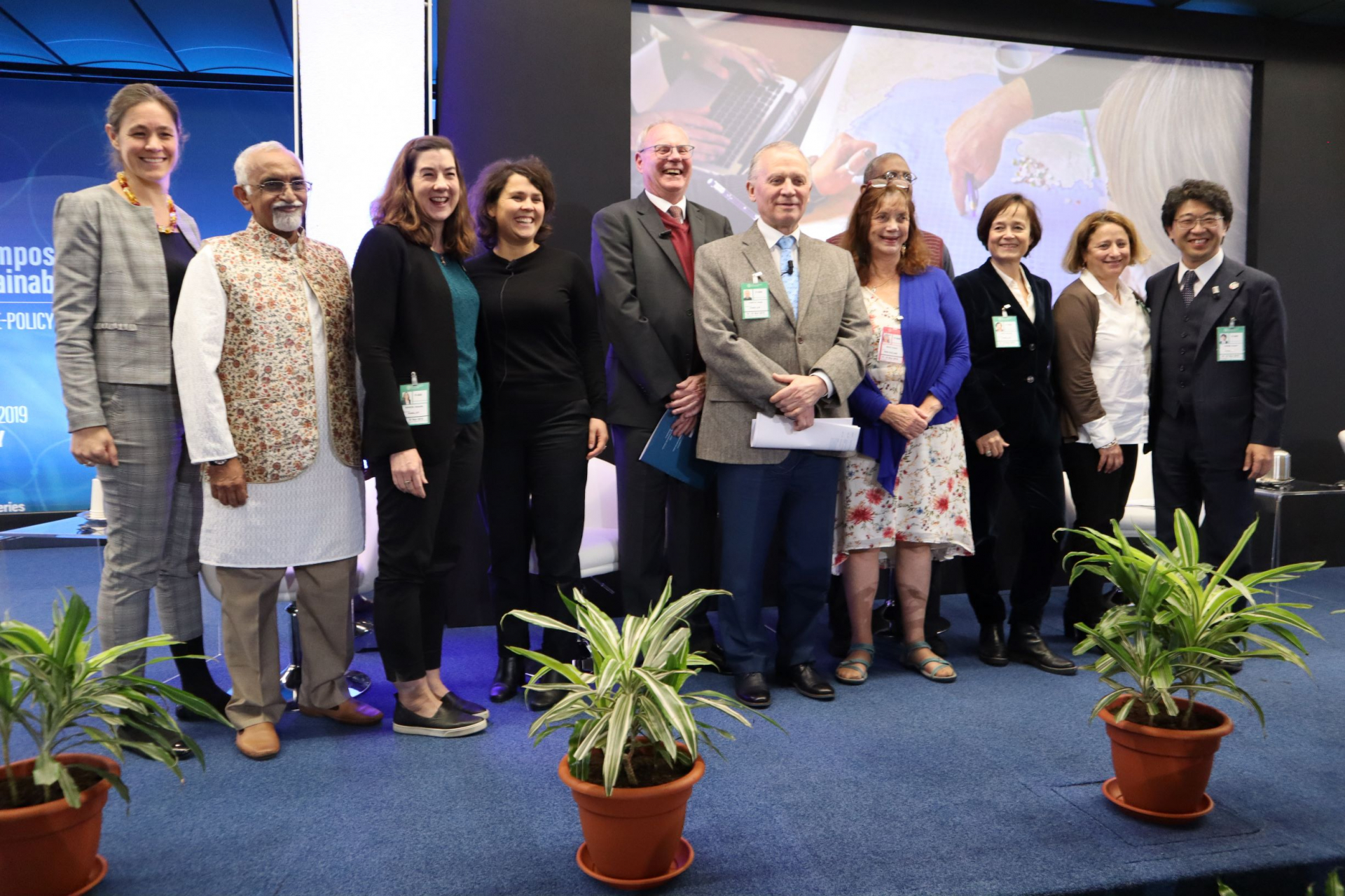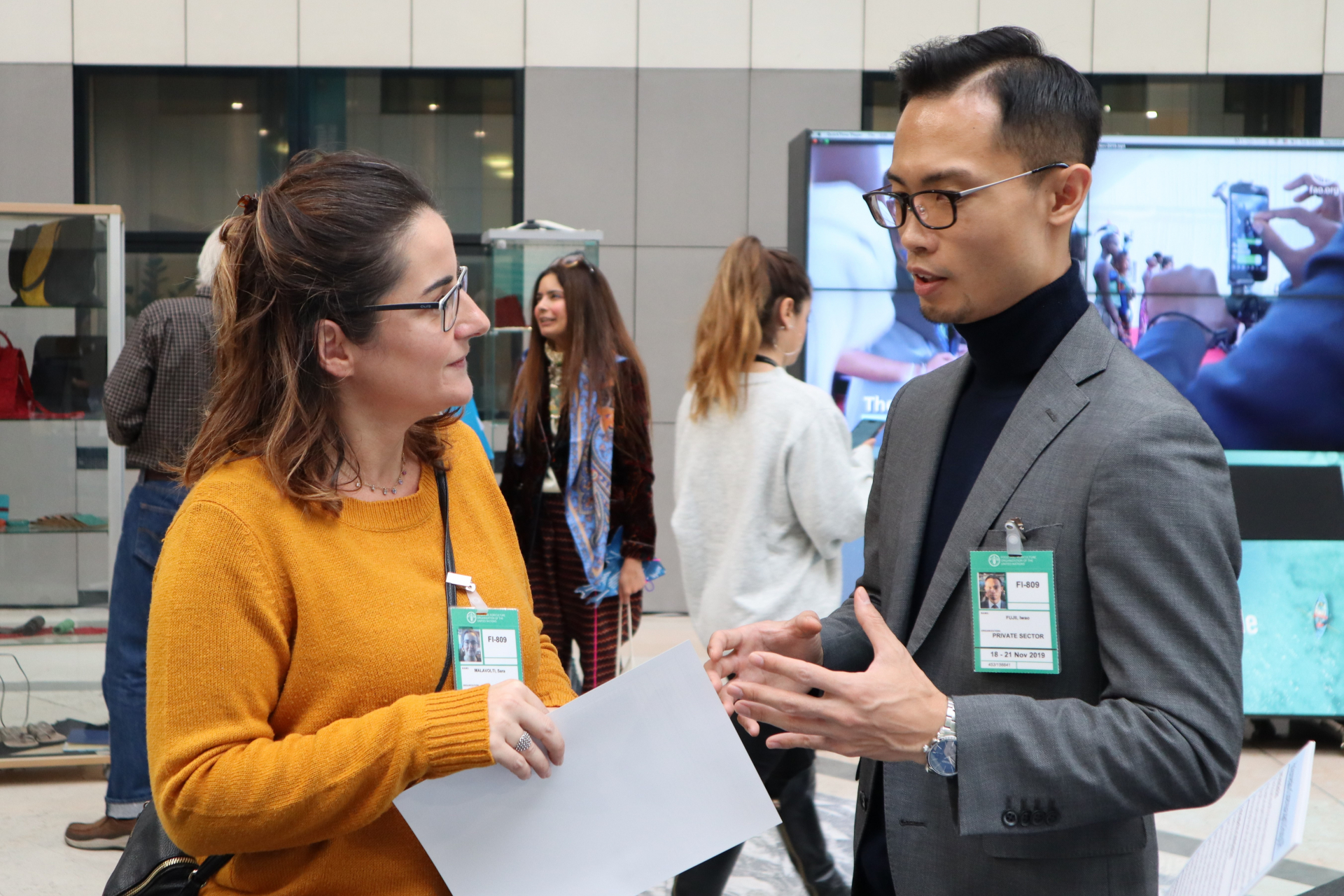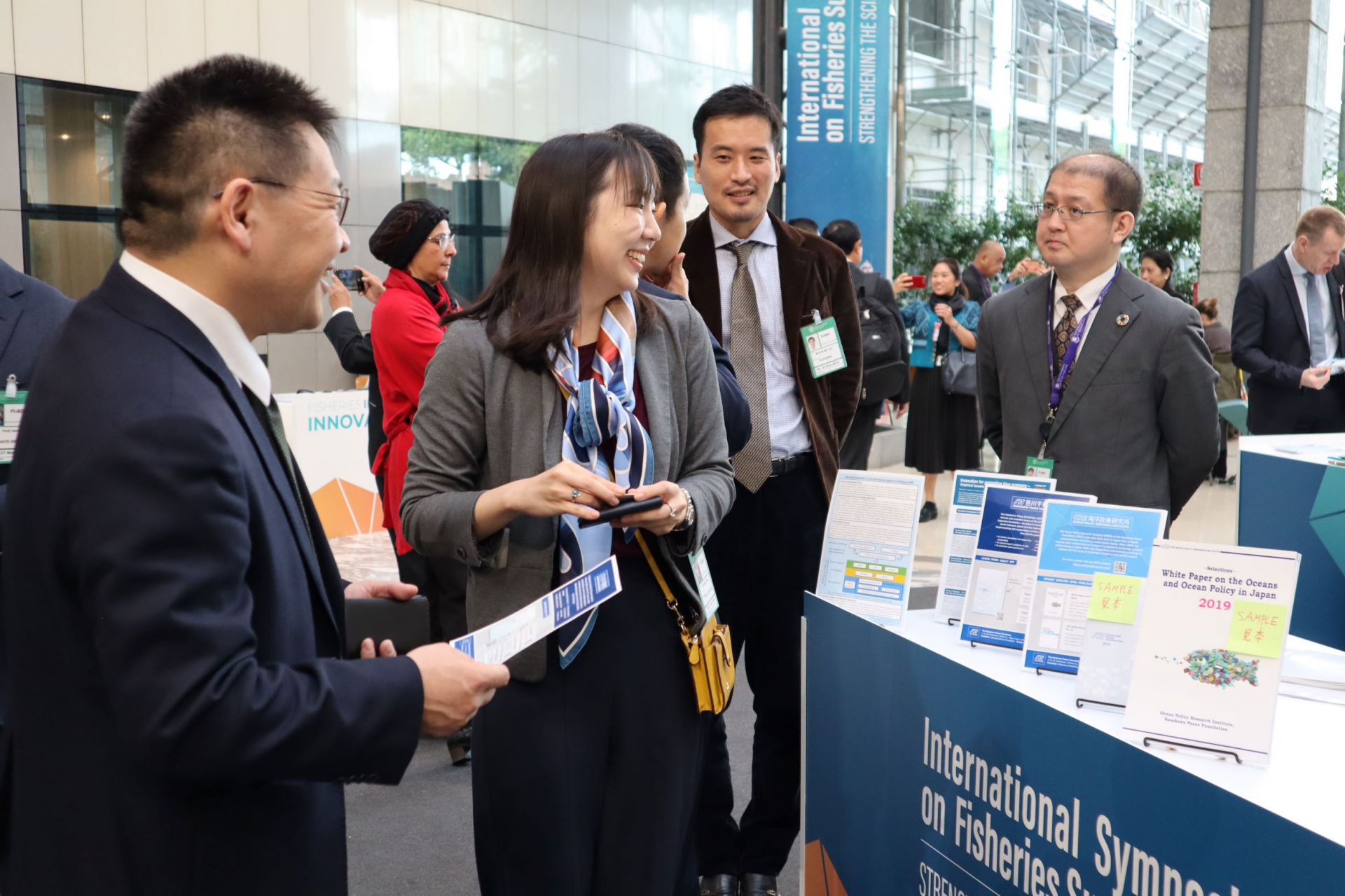Given OPRI’s extensive work around the central theme of supporting healthy oceans for future generations, the institute became a natural partner and active participant throughout the symposium. “The topic of this conference is very important for the future of the ocean and sustainable fisheries,” explained Dr. Atsushi Sunami, president of OPRI. “As the UN kicks off the Decade of Ocean Science for Sustainable Development in 2021, we at SPF are very glad to have the opportunity to work with the UN and other partners on these critical issues.”
In addition to serving on the advisory committee for the symposium, Dr. Sunami chaired two panels on the final day of the event, focusing on policy opportunities for fisheries management looking to the 21
st century. (For videos of the full sessions, visit
FAO's website.)
Both panels saw lively discussions touching on a range of political, environmental, and social issues facing ocean resources and fisheries sustainability.
Ms. Lori Ridgeway, an international consultant from Canada, gave the keynote lecture for the first session, urging all parties involved with fisheries to break free from historical models to forge novel approaches to policymaking and governance. “Looking forward is not going to be business as usual for fisheries. They’re facing new risks, new agendas, more multidimensionality, more uncertainty, and opportunities for new tools, especially disruptive technologies,” she explained.
To contend with this shifting environment, Ms. Ridgeway proposed greater cross-sector cooperation among all key players including fisheries, conservation, and other related industries. She also emphasized the ways that the SDGs and the emerging blue economy principles can be important drivers of change. However, she maintained that while making win-win proclamations at high political levels is easy, measuring progress and ensuring accountability will continue to pose challenges. Accordingly, she urged the fisheries sector to remain actively engaged in substantive debates moving forward to avoid past policy failures.
